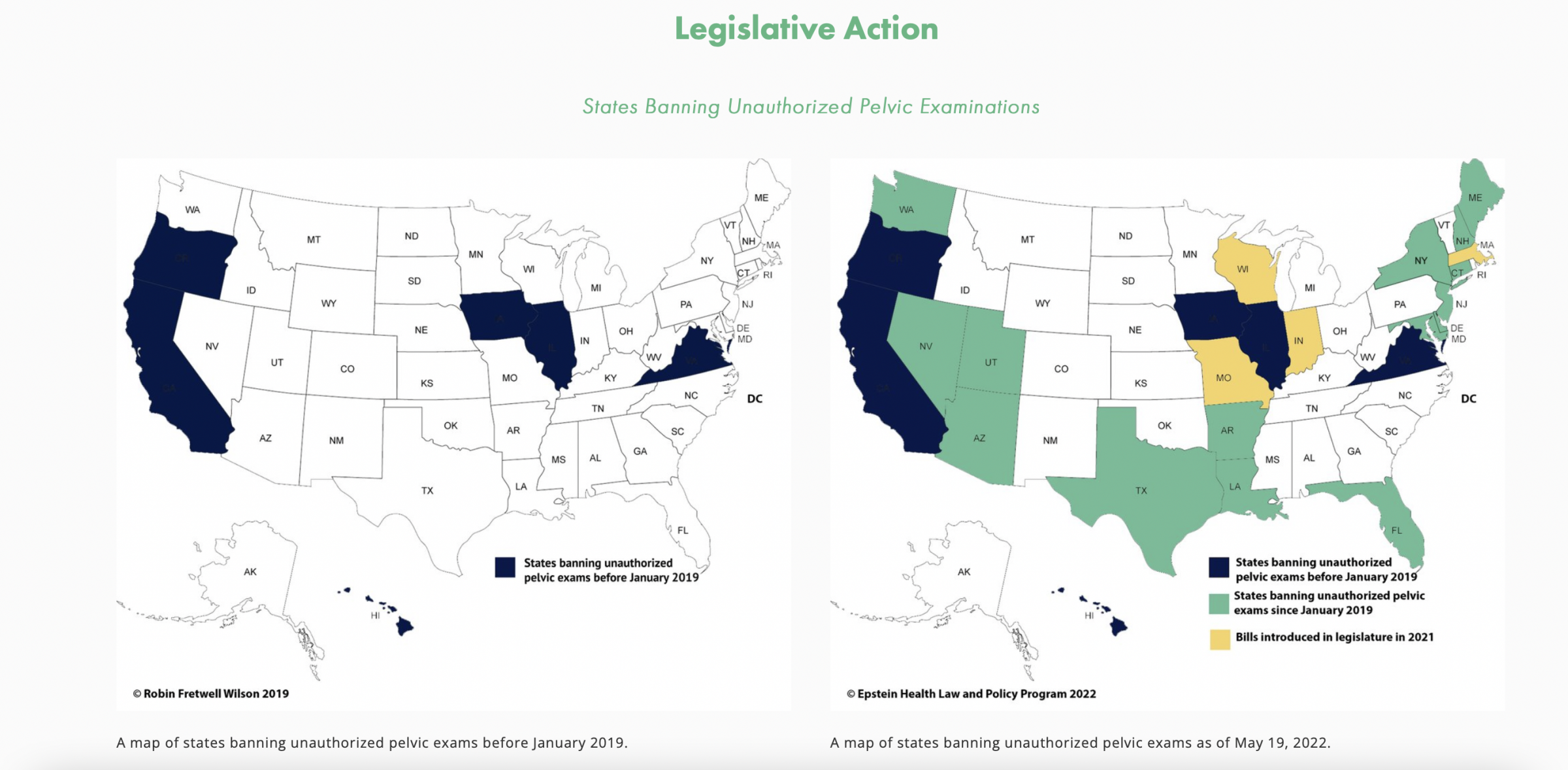While nonconsensual pelvic exams are legal in Tennessee, the practice is banned at the state’s largest medical school, the Memphis-based University of Tennessee Health Science Center (UTHSC).
Under normal conditions, these are called pelvic exams. In them, doctors, nurses, or medical students examine a woman’s vulva and internal reproductive organs like the vagina, cervix, ovaries, fallopian tubes, and uterus. The exams are considered routine parts of wellness checks and Planned Parenthood suggests them for those turning 21.
However, done under anesthesia and without permission, the exams have been labeled nonconsensual pelvic exams. The use of such exams has been normal and widespread for decades. However, more and more states have outlawed the practice with legislation. Also, more schools and professional medical groups have instituted policies and guidelines against them.
UTHSC officials enacted a policy last year that says the ”attending [physicians] will ensure that adequate consent is obtained for an exam under anesthesia. Such procedures include examination of the external genitalia, vaginal speculum exam, internal vaginal exam, and rectal exam.”
Dr. John Schorge is the chairman of obstetrics and gynecology (OBGYN) at UTHSC. He arrived at the university after its policy against the exams was passed. But he said such policies banning nonconsensual exams have become “fairly universal.”
“The bottom line is that performing pelvic exams on women under anesthesia without their knowledge or approval is unethical and unacceptable.”
Dr. John Schorge
“The bottom line is that performing pelvic exams on women under anesthesia without their knowledge or approval is unethical and unacceptable,” Schorge said.
This has been acknowledged, he said, with guidelines and policies from the Association of American Medical Colleges (AAMC) and the American College of Obstetricians and Gynecologists (ACOG). Those say pelvic exams should only be performed on a patient under anesthesia if they have given explicit consent, is related to the planned procedure, done by a student recognized by the patient as part of their care team, and supervised by a teacher.
Schorge said patients are “rarely” opposed to such exams but “there is a spectrum as you can imagine.” Patients will occasionally say they don’t want students involved in their treatment at all, he said, “and we respect that, just like we do in the office.”
Pelvic exams are necessary and integral to plan treatments, Schorge said. As an example, he said hysterectomies can be done numerous ways and pelvic exams are the best way to choose one.
State Law Versus Guidelines
Before 2019, only six states banned the exams, according to data from the Epstein Health Law and Policy Program at the University of Illinois. After 2019, 16 more states banned the practice. In 2021, bills to outlaw the exams were before legislators in four states, according to the latest data.
Schorge said he favors professional guidelines to state laws.
“We — in the OBGYN arena at least — have national guidelines for a reason,” Schorge said. “The reason is that we would like to have a certain consistency, versus a state law that’s kind of draconian in my opinion. We’re indebted to our national organization for guidance on topics like this and it’s pretty clear.”
Florida’s law against nonconsensual pelvic exams took effect in July 2020. The law was originally written to only include exams in certain training environments, according to ACOG. But it was later expanded to mandate consent for the exams in all settings and by all health care practitioners. For this, ACOG opposed the legislation, called it “intrusion,” and vowed to fight it.
”All too often, legislators single out women’s health for regulations and mandates,” ACOG CEO Dr. Maureen G. Phipps said at the time. “This is not only another specific example but could set a dangerous a precedent for further efforts to single out women’s health, particularly their sexual health.”
No such legislation is now before the Tennessee General Assembly.
At UTHSC, Schorge said doctors and students follow the national guidelines. He said he’s never heard of “someone intentionally violating” the policy. If they do, consequences could come after a thorough investigation and then the staff would “address it accordingly.”
As for education, Schorge said the policy does not make it harder to train students. After a patient has given informed consent, the instructor talks the student through the exam out loud for the benefit of other students in the room, who might not be involved in the procedure but will still get something out of it.


